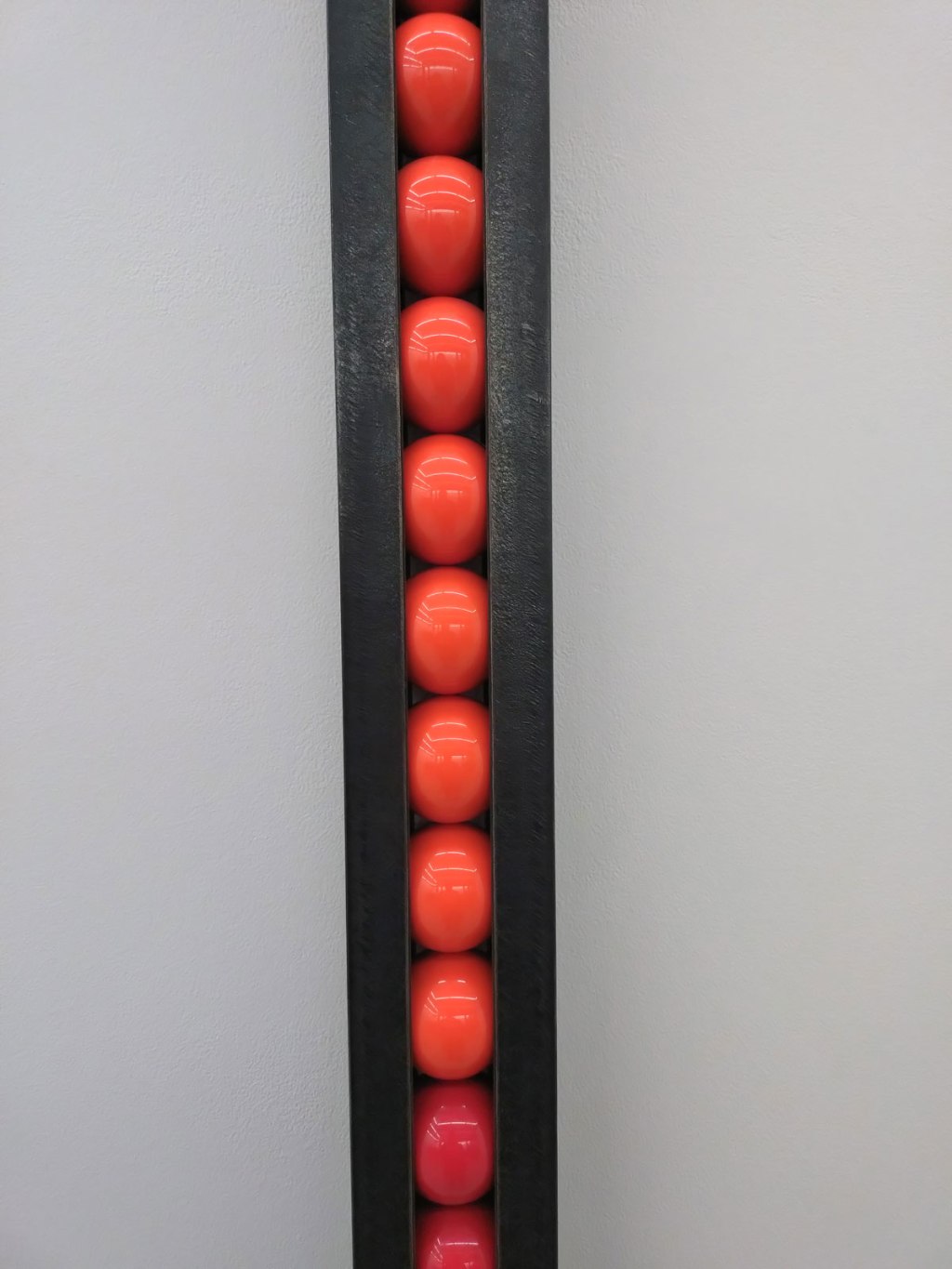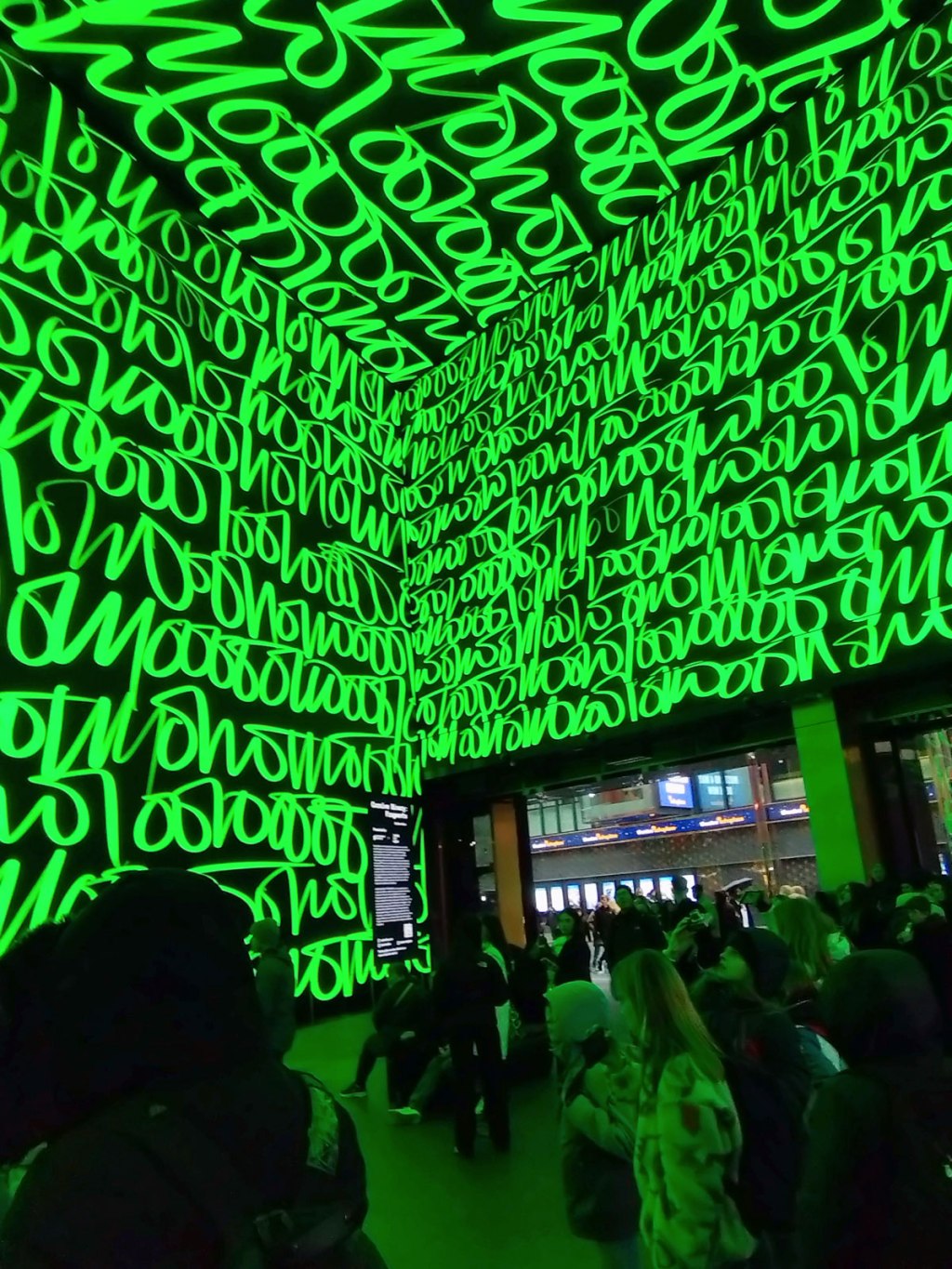Today’s Organ Thing of The Day looks as good as it sounds, a video and watch and listen to the video for Clark’s ‘Lambent Rag‘ here, a video directed and choreographed by Melanie Lane, a taste of the forthcoming ‘Playground In A Lake‘ double vinyl album (and CD, download or whatever you prefer), due out on March 26th on the highly respected Deutsche Grammophon label
On March 26th the ambitiously multifaceted musician/composer Clark presents his chillingly affecting 9th studio album ‘Playground In A Lake’, on which he broadens horizons and tries new things, with profound results. An intriguingly suggestive title, esoteric concept(s) and disparately-unusual-but-cohesively-fused components are chiselled into an effective, concise and painstakingly curated whole. With its orchestral tropes and release on Deutsche Grammophon, this new LP may seem a departure to the casual observer, but is in fact a more illuminated development of clues from past releases. Seeds planted in ‘Kiri Variations’ bucolic-noir, the piano vignettes from ‘Clarence Park’, the folky wonder of ‘Iradelphic’, the strings on ‘Body Riddle’ and his skewed symphonic rework of Max Richter’s ‘Path 5’ have all grown in prominence and vivid detail.
“I’ve always wanted to record strings, but feel there’s this baggage with classical music. Even though I’ve taught myself how to read and write sheet music, I’m not putting that genre, or any other genre on a silver platter. I’m not from an institutionalised contingent who deem a narrow range of instruments ‘the real stuff’ and everything else worthless commercial pop. I take what I admire from that world and then move on. I’m just using it as another colour.
“So, I started thinking about my favourite kind of string arrangements, like Scott Walker records, where they exist amongst contrasting elements. Then I started to approach the album from a dark folk place, also with this heavy 70s synth element. Then came the improvisation of musique concrète, and some of my favourite modern classical and sound design obsessions, and then it clicked”, proclaims Clark.
Although not sounding obviously similar, influences lurk in fibre and foundation on a subconscious, behind-the-scenes level. Bernards Herrmann and Parmegiani, Popul Vuh, Ian Curtis and Dungen all haunt the longplayer in spirit. More pronounced than the influence of other musicians though, are two philosophical tomes: Eugene Thacker’s exploration into pessimism, existence and extinction ‘Infinite Resignation’ and Ernest Becker’s ‘Denial Of Death’, which discusses “the potency and feeling of immortality that symbols / art / music give us, and the mortal reality of our bodies in entropy”, explains Clark.
“What is ‘Playground In A Lake’? Broadly a story about real climate change, but told in mythological terms. It’s about the last human on earth, the betrayal of an innocent child and becoming a grown-up; growing a shell over our lost young selves. It’s the playground we bury and a drowned planet; an extinction myth” states Clark, adding:
“It can be many things: the nuclear fallout covered by a toxic flood, a buried utopia, or buried memories. Buried creative tools and writers block – you have to dive deep to get to the good stuff. The lake is still and serene – so beautiful you want to swim across it and yes, it’s calm on one level, but sinister on another. There’s a seductive numbness to it. A deathly placid chilI.”
With climate crisis looming large, PIAL carries the weight of the world, but rather than hopeless lamentation, it turns the impending doom into captivating sounds. Dark engrossing scenes are heavy with dread, rich in malevolent atmosphere and as gripping as horror fables. However, at points it also radiates a strangely warm, afflicted type of tranquillity: “It’s about sublimating disturbing scenarios through aesthetics. It’s music through various stages of controlled degeneration. I was aiming for decay made beautiful, so you can experience the abject without having to actually experience it”, pledges Clark.
The LP was recorded with string ensembles in Budapest and Berlin, featuring Oliver Coates on cello, Chris Taylor from Grizzly Bear on clarinet, Manchester Collective’s Rakhi Singh on violin, AFRODEUTSCHE and Kieran Brunt on backing vocals, 130701 signee Yair Elazar Glotman on contrabass and 12 year old choir boy Nathaniel Timoney. As well as scoring the guests’ parts, Clark himself sings, plays Disklavier, piano, synths and cello, often manipulating things electronically.
‘Lovelock’ opens deceptively with relatively straight-stringed contemporary leanings, before the parlour-music-from-purgatory of ‘Lambent Rag’’s free-dancing melody flutters untethered, with many layers piled-on in a cacophony of orchestrated chaos, evoking a flurry of burnt material, blowing in a post-apocalyptic storm.
‘Citrus’ situates you in a concert hall at the end of the world. With the audience long expired, a lone ghostly musician plays on, his mournful tones filling the empty, crumbling void. Heartbreaking of melody, but lyrically hopeful is ‘Forever Chemicals’, which personifies a gentle, benevolent spirit, pursuing kindness in a cruel time.
The detuned deep ambience and tampered strings of ‘More Islands’ finds beauty in the rubble, glowing like a post nuclear sunset on a charred earth. Perhaps an elegant eulogy to this planet, or a peaceful passing, the warm, rich saturated synths and soft vocals of ‘Small’ appears as poetic lament, rather than angry protest.
A broken, decrepit music box plays ghastly wretched blues on ‘Disguised Foundation’, which is sung in reptilian, febrile tongues by Clark himself, whilst the sombre piano and numbed resignation of ‘Suspension Reservoir’ appears as a yellowed old photo, capturing lives now lost. On ‘Entropy Polychord’ strings swell, intermingle and talk over one another in a push and-pull of harmony and opposition, before a behemoth of high-def darkness descends as a futuristic, high-magnitude dystopia, which encroaches from oblivion.
Referencing the deadly weather in Dante’s Inferno is the bleak, death-knell-isolation of ‘Aura Nera’, which partners with the aptly-titled sad vapourwave of ‘Already Ghosts’. Rife with chill-inducing atmosphere, both tracks fill the room as if a presence; closer to hauntings in limbo than man-made recordings.
Growing ever more malignant as it continues, by ‘Earth Systems’ infinite inky blackness, we reach a bigger, more threatening space, where the weight of modern sci fi score is summoned in brutal widescreen.
“It felt like I was damning my adult self with a surrogate child version of myself” recounts Clark on ‘Emissary’, where Nathaniel’s child voice sings of “a frightening maze with no way out”, in a cruel but poignant juxtaposition.
The Hitchcockian chiller ‘Comfort and Fear’ morphs into its elder brother ‘Shut You Down’, where all the complex harmony is reduced to a hypnotic drone. An ominous cloud arrives, casting an evil shadow closer to the Hollywood horrors of his ‘Daniel Isn’t Real’ score, with noise contorting from skidding-car-to-strangled-duck-to-electric-guitar.
Befitting the subject matter’s magnitude, ‘Life Outro’ is a long, funereal requiem of devastating goodbye. It’s the end of the album. The shuffling off this mortal coil. The bereavement. Maybe even the end of the world.
More details of Playground In A Lake






Leave a comment